We all know the culinary features of unrefined sunflower oil, but few know how else this product is useful for humans.
The fact is that it contains polyunsaturated fatty acids that are not independently synthesized in the body. A full, balanced diet is impossible with their deficiency. These acids are also known as vitamin F.
The appearance of an exotic product in our country at first is associated with the name of D. Bokarev, because it was thanks to him, in 1829, that a method of obtaining sunflower oil appeared. Sunflower oil quickly gained popularity. And closer to the middle of the 19th century, export to other countries began.
The classic way of obtaining unrefined oil is cold-pressed technology; this type of oil is most useful for humans.
Modern production mainly uses the extraction method. Which is the extraction of oil using various organic solvents (gasolines). And they are refined with acids and alkalis. Of course, after such processing, there is nothing living in it, it is a dead product. Traditionally unrefined sunflower oil produce mainly small-scale production and sell on the markets.
Calorie content of sunflower oil
Unrefined sunflower oil is very high in calories. A tablespoon contains an average of 800-1000 kcal per 100 grams of product. Despite this, overweight people are advised to replace animal fats with unrefined sunflower oil. Still, there are restrictions on the use, no more than 20 grams per day, no more. An excess of fat can harm the functioning of internal organs.Useful properties of unrefined sunflower oil
The polyunsaturated fatty acids that make up the composition have a beneficial effect on the walls of blood vessels. Harmful cholesterol is removed, due to which blood pressure is normalized.
With the help of sunflower oil in folk medicine, a huge list of diseases is treated.
- stomach diseases;
- heart problems. Hyper- and hypotension;
- gallstone disease;
- atherosclerosis;
- arthrosis
But as they say, everything is good in moderation. Therefore, do not exceed the daily intake. In addition, for the purpose of recovery, it is necessary to use oil that has not undergone heat treatment, that is, using it in salads. When frying, unrefined oil acquires undesirable and harmful properties; under the influence of high temperature, carcinogenic substances are formed from unrefined impurities. Therefore, it is less harmless to use refined oil for this purpose. Although fried foods are not at all a healthy diet.
How to choose a good oil
When choosing unrefined oil on the market, of course, one should be guided by organoleptic methods, that is, color, smell, taste. If you buy this product from a retail network, then pay attention to the label, it should indicate that this oil unrefined and not deodorized, and of course the shelf life is respected. The oil is stored in a dark place and its shelf life is short.
What to cook with unrefined sunflower oil
The wonderful taste of fresh unrefined sunflower oil will decorate any salads and marinades. Be it any vegetables or fish, pickled mushrooms, everywhere the wonderful taste of such oil will come in handy and will emphasize all the flavor notes of the dish. Be healthy!
In the information age, when mankind has long studied the properties and characteristics of all products that are on its table, vegetable oil plays an important role in supporting a person's healthy lifestyle.
Vegetable oil is a food product of origin, which is obtained as a result of processing oil plants.
A person cannot do without it, and this is evidenced by the fact that a great many housewives use it in the manufacture of various dishes and salads. What are the types, and how is it useful for humans? Let's look at the useful properties of some of its types.
Vegetable oil, calorie content, types and properties
- Many people think that its caloric value is low and therefore it is used in diets. However, it has no less than and even more. It is equal to 899 kcal versus 748 kcal.
- What is vegetable oil and what types do we know? Vegetable oil is sunflower, olive, linseed, rapeseed, cottonseed and other types of vegetable oils.
- This product contains a complex of mineral elements that are useful for the human body in the form of polyunsaturated fatty acids that promote the growth of body cells.
- It is a storehouse of vitamins A, E, D, minerals, phospholipid compounds.
- Does not contain one of the dangerous substances - cholesterol.
- Easily absorbed and not very hazardous to human health.
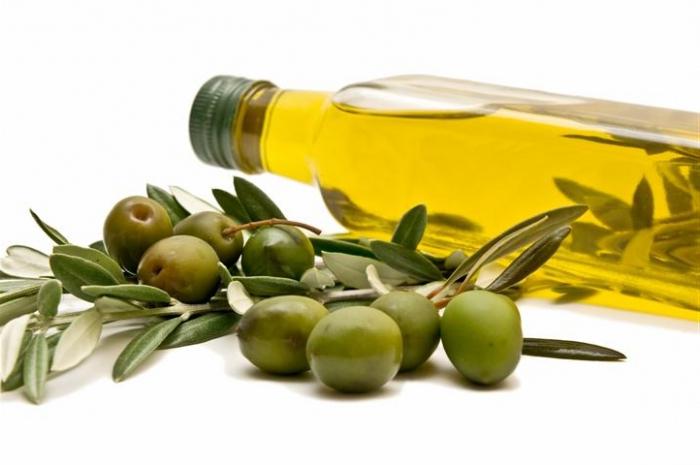
The most significant not only in the kitchen, but also in everyday life for a person is the oil squeezed from sunflower seeds. The father of sunflower oil is considered to be the Russian peasant Bokarev D.S., who once tried to squeeze it out of seeds by means of a manual churn.
His attempt was crowned with success, and a few years later, butter mills appeared in Russia, which began to export vegetable oil to other countries.
Contains linoleic (up to 62%) and oleic (up to 40%) acids. Foods containing these substances are easily absorbed by the body. In addition, the oil contains fractions of arachidonic, myristonic, palmitic, stearic, linolenic acids.
Sunflower oil is used in medicine and cosmetology. The presence of vitamin E in it allows the human body to produce the correct proportion of sex hormones. It is not for nothing that E is considered a multiplication vitamin. Traditional medicine also uses sunflower oil based remedies for rheumatism, and it is also used for coughs and otitis media.
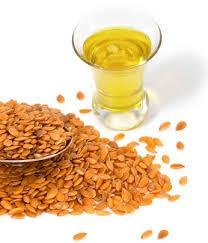
In terms of usefulness of all types of vegetable oils, olive is in the first place. It contains useful compounds and is practically harmless. The rich content of tocopherol, linoleic and polyunsaturated acids distinguishes it from other types of vegetable oils. It does not promote Ca leaching from the body and, importantly, does not contain cholesterol. Cosmetology uses face and hair masks containing olive oil. During massage procedures, doctors also recommend using it.
It is no less useful for us. This is the primary source of the Omega3 compound, it is this substance that is an obstacle to the growth of cancer cells. Taking this product helps to remove toxic substances from the body and optimize metabolic processes.
It is important to know that it is best to use cold-pressed oil. Vegetable oil, its calorie content and properties with this type of processing are preserved more than with heat treatment.
If you want to always be healthy, then you must remember that any product must be used within reasonable limits.
Remember the law of the optimum, which says that every element of nature affects a living organism, incl. and per person. If the influence of an element is insufficient or excessive, then this will necessarily negatively affect the development and vital activity of the organism.
Observe the norm in everything - and your health will always be at its best!
It is difficult to overestimate the benefits of natural vegetable oils, they all contain biologically active substances, vitamins and trace elements in quantities necessary for the human body for normal functioning. How many calories are in the oil, how many vitamins, which ones, what nutrients are present in vegetable oils?
Any vegetable oil contains fatty acids, poly- and monounsaturated. These are well-known for their beneficial properties Omega 3,6 and 9. In addition, phospholipids, sterols, vitamins, pigments, waxes, essential oils and a lot of biologically active substances that were contained in the fruits or seeds of the plant.
There are practically no proteins and carbohydrates in vegetable oils, in addition, cholesterol is completely absent, but this product is quite high in calories.
So how many calories are in vegetable oil? In sunflower - 898 kcal, in olive - from 824 to 900 kcal, in corn - 900 kcal, in soybean - 999 kcal per 100 grams of oil, for comparison, pork fat is close in calories to vegetable oils - 841 kcal, and lean veal has only 97 kcal per 100 grams of product.
It would seem, given how many calories there are in oil, it should not be included in the diet of those who follow a diet, however, most diets and a balanced nutrition system contain olive, sunflower, linseed, and other vegetable oils. What is the reason for this?
Vegetable oils - slimness and calories
Nutritionist M. Ingmar, having analyzed the menu of the Swedes, made an interesting observation: fatty herring was constantly present in their diet, they ate legumes and salads, without counting how many calories were in vegetable oil, which was watered with herring and salads, and 20 years ago there were cases of obesity single.
Swedes became obese when they began to consume salad dressings with skim milk, large amounts of starch, thickeners and stabilizers, margarine, ready-made sauces and mayonnaise, which supposedly contain significantly less fat than vegetable oil. How many calories are in these products is a moot point, one thing is certain - the harm from them is much more than the benefit.
Many national cuisines use vegetable oils very abundantly, and, as a rule, these are cold-pressed oils, for example, the Mediterranean cuisine is based on olive oil, and these peoples are much more inclined to slimness than excess weight, even considering how many calories are in olive oil. oil.
Perhaps a dressing made of oil with lemon juice is more caloric than fat-free mayonnaise or salad dressing, but it will bring much more benefit to the body, because it does not contain any artificial additives, starch, dyes, stabilizers, satisfies hunger, saturates the body with useful substances, trace elements and vitamins ...
How many calories in vegetable oil is not directly related to excess weight, because the fats it contains are unsaturated, they are broken down very quickly, removing cholesterol from the body.
Vegetable oils for the diet
Refined vegetable oils undergo many stages of processing, during which many vitamins and biologically active substances are lost. These oils are almost odorless, the taste is not pronounced, they can be stored for a long time, however, the refining process does not affect how many calories are in vegetable oil.
Unrefined oils retain all the beneficial properties and vitamins, such as A, D, E, K, group B. The most useful unrefined oil is the oil obtained by cold pressing, the so-called "first pressing". It must be stored at zero temperature, otherwise it will lose its beneficial properties and may become cloudy.
Let's take a closer look at the benefits of sunflower, corn and olive oil.
- Sunflower oil
Reduces cholesterol levels, recommended for problems in the cardiovascular system. It is used in the so-called "beauty diets", how many calories are in oil for such a diet is insignificant, it is important that it contains a lot of lecithin and vitamin E, a powerful natural antioxidant that prevents aging of the body. This substance is necessary for the body to form the intercellular space, renew damaged cells and deliver nutrients and vitamins to them.
- Corn oil
It does not have such a pronounced taste as sunflower, but it is also rich in vitamin E, and in addition, folic acid, one of the B vitamins that are present in corn oil. How many calories can be consumed by seasoning a salad with this oil will hardly affect the figure, and folic acid is needed by the body to create red blood cells, assimilate proteins, DNA synthesis, and normal functioning of the immune system.
- Olive oil
The number of calories in this oil has already been mentioned, from 820 to 900, however, it is recommended for diets, especially unrefined, cold pressed. This oil regulates the gastrointestinal tract, treats ulcers and gastritis, has a beneficial effect on the liver and pancreas, acts as a choleretic agent, and bile is needed to break down fats.
Olive oil is rich in monounsaturated fatty acids Omega 9, up to 87%, and they tend to significantly reduce appetite.
Experiments have shown that using monounsaturated fats in the diet is more effective in reducing obesity than low-fat diets. How many calories are in the oil in this case does not play any role. Weight loss was recorded even when there were no dietary restrictions.
For other oils, the recommended amount per day is two teaspoons, 50 grams. How many calories in vegetable oil should be counted if the diet contains white bread, pasta and cakes, if carbohydrates are limited, nutrition is balanced and rational, the calorie content of vegetable oils will not affect the figure in any way, and their moderate regular use will bring undoubted benefits.
For some reason, vegetable oils are considered a dietary product. Meanwhile, the calorie content of our so beloved domestic sunflower oil and expensive imported olive oil is 899 calories per 100 grams of product. Exactly the same calorie content in all animal fats. Therefore, by using vegetable oil for frying, you will not get a decrease in the calorie content of the dish.
It is believed that there are many useful substances in vegetable oils, but no less useful substances for our body are contained in animal fats. Moreover, animal fats are closer to our body and they are absorbed even easier than vegetable oils.
Some vegetable oils are generally unsuitable for nutrition. This applies to margarines and palm oil, which are actively used in confectionery. Their melting point is higher than the temperature of the human body and they cannot be absorbed and processed properly. Corn and canola oils can contain GMOs, as can soy
There is one more disadvantage of vegetable oils - this is the way they are obtained. Most of the oils we use for frying, the so-called refined oils, are produced chemically. To obtain such an oil, the seeds are filled with an analogue of gasoline with an organic solvent, hexane. Then the hexane is removed with steam, and the residues are removed with alkali. Then all this is bleached under vacuum with steam. And they get a completely dead product with remnants of chemistry, from which there is more harm than good.
When frying, vegetable oil should not be heated to more than 100 degrees, since a carcinogen is formed at a higher temperature. acralamide.
Thus, for nutrition, it is best to use cold-pressed oil and season salads with it, add to ready-made dishes. Ghee or animal fat is best for frying.
But even when refueling dishes, you should not overdo it with vegetable oils, because their calorie content is extremely high.
Calorie table of vegetable oils and fats per 100 grams
|
Product |
Protein |
Fats |
Carbohydrates |
Kcal |
|
Low-calorie margarine |
545 |
|||
|
Margarine Slavyansky |
743 |
|||
|
Creamy margarine |
745 |
|||
|
Table milk margarine |
743 |
|||
|
Margarine Extra |
744 |
|||
|
Apricot oil |
99.9 |
899 |
||
|
Peanut butter |
99.9 |
899 |
||
|
Grape seed oil |
99.9 |
899 |
||
|
Mustard oil |
99.8 |
898 |
||
|
Walnut oil |
99.8 |
898 |
||
|
Cacao butter |
99.9 |
899 |
||
|
Coconut oil |
99.9 |
899 |
||
|
Hemp oil |
99.9 |
899 |
||
|
Peasant butter, unsalted |
82.5 |
748 |
||
|
Peasant salted butter |
82.5 |
748 |
||
|
Corn oil |
99.9 |
899 |
||
|
Sesame oil |
99.9 |
899 |
||
|
Linseed oil |
99.8 |
898 |
||
|
Poppy oil |
99.8 |
898 |
||
|
Almond oil |
90.7 |
816 |
||
|
Sea buckthorn oil |
99.5 |
896 |
||
|
Olive oil |
99.8 |
898 |
||
|
Palm oil |
99.9 |
899 |
||
|
Sunflower oil |
99.9 |
899 |
||
|
Rapeseed-soybean oil |
884 |
|||
|
Rapeseed oil |
884 |
|||
|
Butter |
82.5 |
748 |
||
|
Soybean oil |
99.9 |
899 |
||
|
Ghee butter |
892 |
|||
|
Pumpkin seed oil |
99.5 |
896 |
||
|
Chocolate butter |
18.6 |
642 |
Nika Sestrinskaya -specially for the site site
Vegetable oil is exactly the product that cannot be completely excluded from the diet, even for people who carefully control their weight. The benefits of this product for the human body are invaluable, because thanks to unsaturated fatty acids, the oil helps to preserve the beauty of hair, skin, etc. Of course, you need to understand that the energy value of the product is high, if you do not control its consumption, then you can provoke a rapid weight gain.
Vegetable oil is extracted from the seeds and fruits of various plants, for example, almonds, olives, sunflowers, corn, etc. Therefore, the calorie content of vegetable oil directly depends on the culture from which it was produced. Well, today we will talk about a product made from sunflower seeds.
The benefits of sunflower oil
The most popular among most housewives is butter made from sunflower seeds. Its lovely ladies use it for dressing vegetable salad, vinaigrette, cooking stewed cabbage, fried potatoes and for creating a huge number of dishes.
There are two types of lean butter:
- Refined;
- Unrefined.
The calorie content of the product will depend on these inscriptions on the label. If we talk about usefulness, then at least there are more calories in unrefined oil, on the other hand, the composition is rich in vitamins.
So, the unrefined product contains as much as 899 kcal per 100 g, it is very rich in polyunsaturated acids. If we talk about average indicators, then in vegetable oil the approximate content of linoleic acid varies within 42–62%, and oleic acid within 24–40%.
All these substances have a beneficial effect on the body: they strengthen the immune system and normalize metabolic processes. The presence of a large amount of vitamins and minerals in this popular salad dressing has a positive effect on the nervous system, improves the condition of the hair, skin, stabilizes the digestive tract, etc.
About calorie content
As already mentioned, the energy value of 100 g of butter is 899 kcal. Of course, the indicator for losing weight is simply frightening, but do not rush to completely abandon such a useful product. If you do not drink it daily at 100 g, but use it in doses, in a few drops, then you can get the maximum benefit from the oil, and even lose weight.
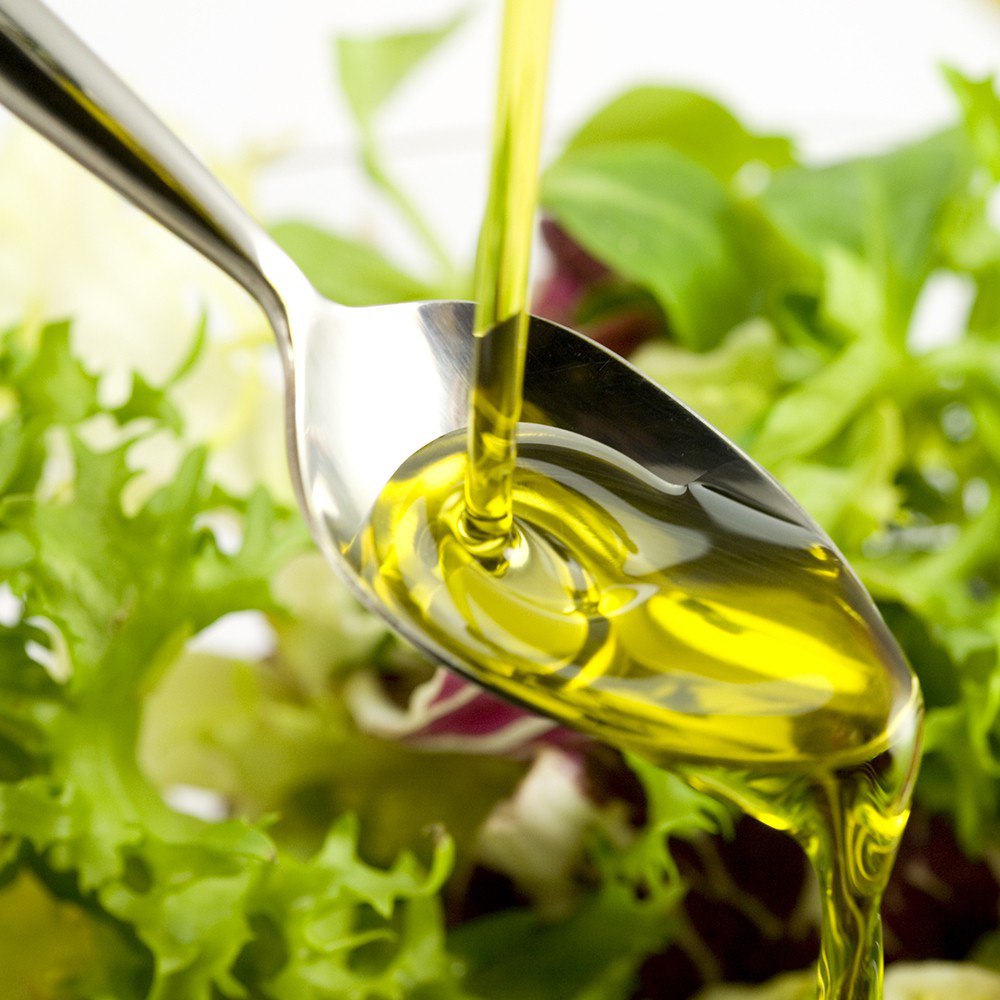
Therefore, remember, in 1 tbsp. l. of a lean product, there are about 152 kcal, and in a teahouse only 45 kcal. Wouldn't a small spoon be enough for you to season a salad or fry eggs? Of course that's enough. Although fried during weight loss is still worth giving up.
Summing up the above, we can conclude that the use of oil during the period of weight loss is permissible, but in moderation. It is the metered use of the product that will be able to nourish the body with the necessary vitamins and at the same time not inhibit the process of weight loss.
By the way, if you are currently actively losing weight, then use lean butter not only as an addition to your favorite dishes, but also as effective remedy to combat cellulite, massage with it.
We find out the energy value of common dishes with the addition of vegetable oil
Since this product is used to prepare a large number of dishes, I would like to consider the most popular and determine their energy value.
The first step is to find out the calorie content of an egg fried in vegetable oil, since this is a traditional breakfast for many families. Suppose you use 4 eggs and 1 teaspoon for cooking. oil. The energy value of cooked scrambled eggs will be 390 kcal. Having shared a dish with one of your relatives, reduce the calorie content accordingly.
The next dish that many people love is fried potatoes. It should be said right away that everyone's favorite French fries should be excluded from the diet, since its calorie content is about 400 units per 100 g. This is a lot for those who want to get rid of the excess.
The calorie content of potatoes fried in vegetable oil without any unnecessary additives, prepared according to a traditional recipe, will be approximately 192 kcal. A lot, but sometimes you can afford it.
Most women who are on a diet season vegetable salads with a lean product, but what is the energy value of such a dish? It can vary, depending on the ingredients that will be included in the salad.
For example, take the following foods:
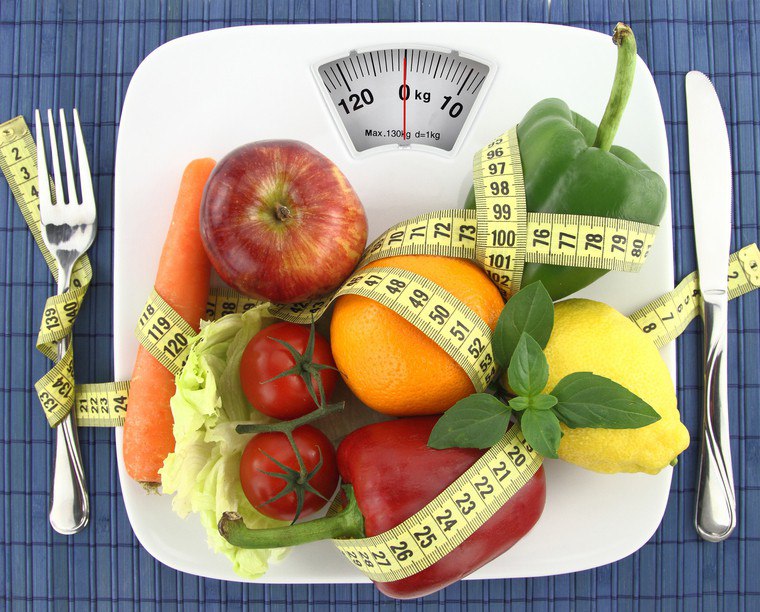
- fresh tomatoes - 200g;
- cucumbers - 300 g;
- radish - 200 g;
- pepper - 200 g;
- green onions - 50 g;
- vegetable oil - 40 g;
- salt - 2 g.
From the listed ingredients, you will get 6 full servings of salad.
It is prepared in an elementary way: all vegetables are washed and chopped in random order.
Then they are mixed in a deep bowl, seasoned with oil and sprinkled with salt. The calorie content of such a vegetable salad with vegetable oil will be only 55 kcal per 100 g.
Those who are interested in the calorie content of vegetable vinaigrette with vegetable oil will be pleased to know that 100 g of such a salad contains about 60 kcal.
If you love cabbage hodgepodge, but do not know how to cook it so as not to gain weight, make it according to the recipe described below. The calorie content of such stewed cabbage with vegetable oil is no more than 50 kcal per 100 g, and the taste is simply incomparable.
For cooking you need:
- cabbage - 800 g;
- tomatoes - 350 g;
- carrots - 100 g;
- onion - 200 g;
- vegetable oil - 30 g;
- salt - 8 g.
The preparation steps will be as follows:
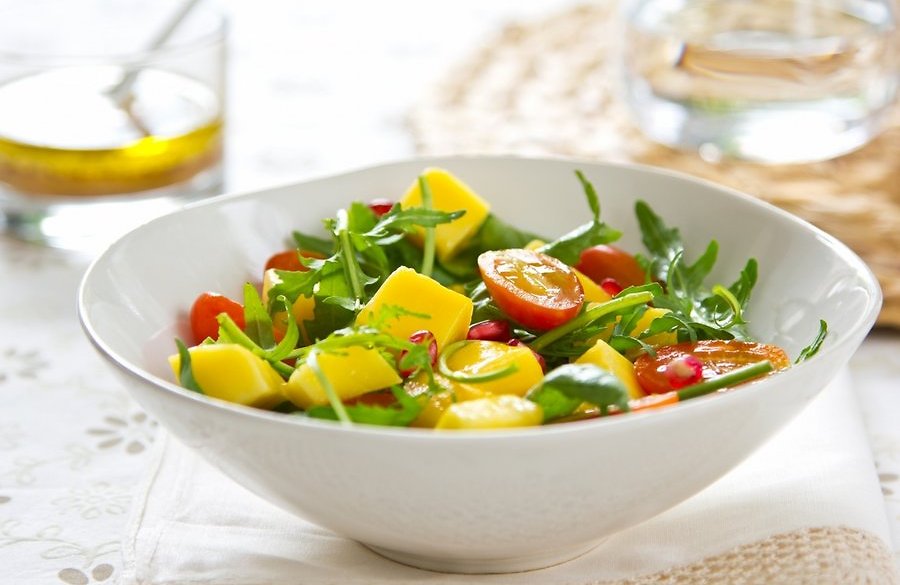
- Remove the husk from the onion and chop finely;
- Heat the oil in a frying pan and put the prepared onion there, fry until golden brown;
- Put the finely grated carrots to the onion, mix everything. Fry vegetables together for about seven minutes;
- Chop the cabbage finely and put in the pan, stir the contents of the dishes;
- Wash tomatoes and cut into small pieces, put with other vegetables;
- Salt the contents of the skillet, stir and cook over low heat until the cabbage softens.
Now you know everything useful information about vegetable oil, as well as the calorie content of some dishes with the addition of a lean product.
New knowledge will be a good basis for you on the path to harmony. Good luck!


